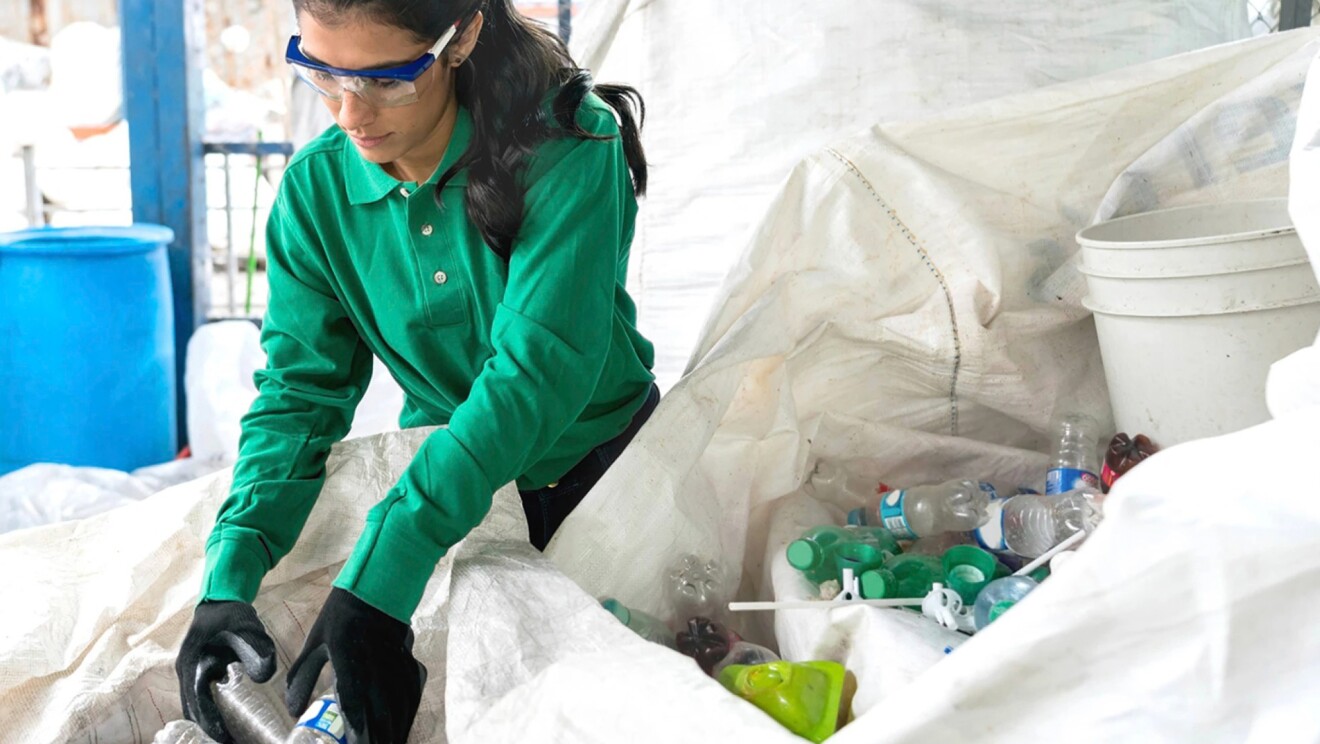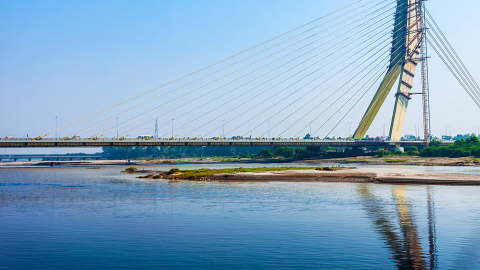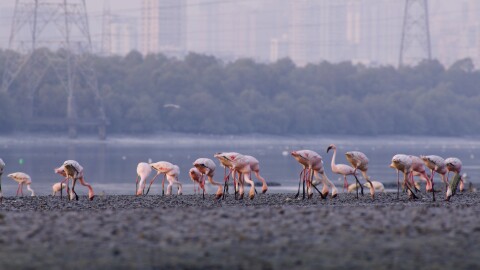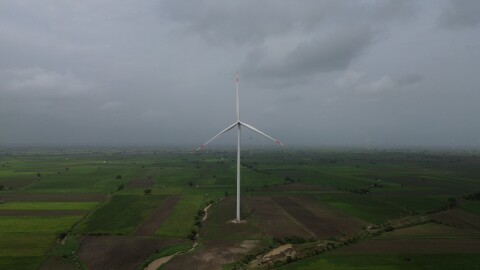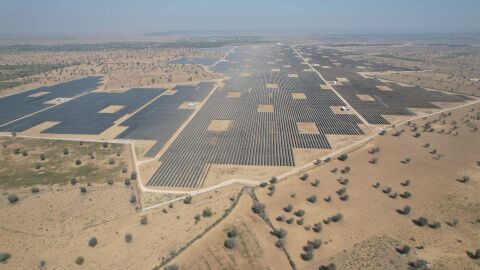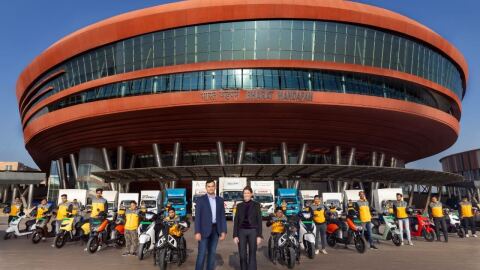Laneshift—a new initiative launched by The Climate Pledge and C40 Cities to reimagine what zero-emission freight shipping looks like—will reduce carbon emissions by replacing conventional road freight vehicles with electric alternatives, along with the routes they travel. The Climate Pledge (co-founded by Amazon and Global Optimism) has committed $10 million to C40 Cities (a network of nearly 100 mayors of the world’s leading cities) for kickstarting the project.
Road transport and air emissions
Road freight is a major source of air pollution and one of the most important yet challenging sectors to decarbonise. According to the Global Commercial Vehicle Roadmap, cities need to be saturated with EV trucks by 2030 in order to achieve the target of 100% zero emission commercial trucks by 2040. Laneshift is designed to help catalyse this by partnering with cities to accelerate EV infrastructure development and the deployment of EV vehicles. “Cities in Latin America and India offer excellent opportunities to lead the way for electrification of trucks, and collaboration in these regions are critical to accelerating the transition to a cleaner, healthier environment,” says Kara Hurst, vice president and head of Worldwide Sustainability at Amazon. “Laneshift provides a platform to bring stakeholders together to move faster.”
EV boost for 4 Indian cities
Laneshift will accelerate the development of EV infrastructure and the deployment of EV vehicles across Mumbai, Bengaluru, Delhi, and Pune. The project offers a wide range of benefits—reduced emissions, cleaner air, green jobs generation, and more.
"Mumbai is a major freight hub. With support from C40 and The Climate Pledge, we will be able to accelerate the much-needed electrification our fleet not just in the city, but across Maharashtra and beyond. Laneshift will be good for our people and our planet,” says Iqbal Singh Chahal, the municipal commissioner and administrator of the Brihanmumbai Municipal Corporation (BMC). Major cities in Latin America such as Colombia, Brazil, Ecuador, and Mexico will also benefit from Laneshift.
Roadmap to reduce CO2 emission
In 2020, road freight emitted more than 2.2 billion metric tons of CO2—that’s two times more emissions than air, sea, and rail freight combined. Current projections suggest that no slowdown is expected in road freight emission. Studies suggest that urban freight is projected to grow by 140% by 2030 in India and road freight is expected to double by 2025 in Latin America. Through Laneshift, all stakeholders will work together to help equitably reduce and avoid greenhouse emissions. The project will also contribute to help clean up dirty air that affects vulnerable communities in India and Latin America. Laneshift will create a roadmap for how the freight industry and cities can work together to transition to electric vehicles by sending demand signals and collaborating across transportation and logistics sectors. This locally-focused initiative complements Amazon’s federal and regional efforts in these countries. Laneshift will also ask The Climate Pledge signatories and a variety of other companies including financiers and original equipment manufacturers, to join the initiative.
Partnership to decarbonise road freight
"Road freight is a high priority for decarbonisation and a difficult sector to tackle. Laneshift will bring together cities and businesses that are at the leading edge of climate action, through this unique partnership between C40 and The Climate Pledge. This is the kind of collaboration that will be essential for success," says Tom Rivett-Carnac, founding partner of Global Optimism. Mayors of C40 Cities are committed to using a science-based and people-focused approach to help the world limit global warming to 1.5 degrees Celsius and build healthy, equitable, and resilient communities.
Amazon’s decarbonisation journey
Amazon continues to decarbonise its own transportation network with multiple EV partnerships around the world. Amazon currently has more than 6,000 EVs in its India delivery fleet, making deliveries across the country. The company is on track to have 10,000 EVs in India by 2025. In 2022, Amazon had more than 9,000 electric delivery vehicles (EDV) in its global fleet and delivered over 145 million packages using EVs in the U.S. and Europe.



